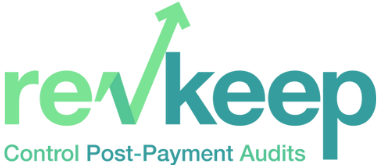The role of compliance in the context of RAC (Recovery Audit Contractor) audits is crucial in ensuring that healthcare providers adhere to regulatory requirements and billing standards while managing the audit process effectively. RAC audits are conducted by contractors hired by the Centers for Medicare & Medicaid Services (CMS) to identify and recover improper Medicare payments. Here’s how compliance plays a significant role in RAC audits:
Compliance: A Navigator in RAC Audit Success
Billing and Coding Compliance
Billing and Coding Compliance: Compliance is essential in RAC audits to ensure that healthcare providers have correctly billed and coded services according to applicable regulations and guidelines. Proper coding and billing practices reduce the risk of audit findings related to overpayments or underpayments.
Documentation Compliance
Documentation Compliance: Compliance with documentation requirements is critical. Providers must maintain accurate and complete medical records that support the services billed. Proper documentation ensures that providers can substantiate their claims during RAC audits.
Regulatory Compliance
Regulatory Adherence: Compliance programs should help providers stay current with the ever-changing Medicare rules and regulations. Regular updates and training on Medicare billing guidelines are essential to avoid audit findings related to regulatory violations.
Audit Response Compliance
Audit Response and Cooperation: Compliance efforts should include procedures for responding to RAC audit requests promptly and accurately. Cooperation with auditors, providing requested documentation, and addressing audit findings in a timely manner are key components of compliance in this context.
Mastering Appeals
Appeals Process Compliance: Healthcare providers have the right to appeal RAC audit findings they believe to be incorrect. Compliance programs should outline the proper procedures for filing appeals and ensuring that they are filed within the specified timeframes.
Internal Auditing and Monitoring
Internal Auditing and Monitoring: Healthcare organizations should have internal auditing and monitoring processes in place to proactively identify and address potential compliance issues before a RAC audit occurs. This can help prevent audit findings and associated penalties.
Staff Training and Compliance
Educating Staff: Compliance programs should include ongoing education and training for staff involved in billing and coding to keep them informed about the latest Medicare regulations and audit trends.
Risk Assessment and Data Analytics
Data Analytics and Risk Assessment: Compliance programs can benefit from data analytics and risk assessment techniques to identify areas of potential non-compliance. This proactive approach allows organizations to address issues before they attract RAC audit attention.
Record Retention and Preservation
Record Retention and Preservation: Compliance efforts should include policies and procedures for the proper retention and preservation of records, as auditors may request historical documentation during RAC audits.
Ethical Considerations
Ethical Considerations: Ensuring ethical conduct throughout the audit process is a critical aspect of compliance. This includes avoiding any fraudulent or unethical practices that could lead to RAC audit findings and potential legal consequences.
Conclusion
In summary, compliance in the context of RAC audits is about following established rules and regulations, maintaining accurate documentation, cooperating with auditors, and having robust processes in place to respond to audits effectively. Compliance programs help healthcare providers minimize the financial and legal risks associated with RAC audits and ensure that they are billing Medicare correctly.
Kevin Lasser is the CEO of RevKeep. RevKeep helps healthcare providers retain more money previously earned in an environment where there are shortages in various departments. Learn more at www.revkeepsoftware.com


